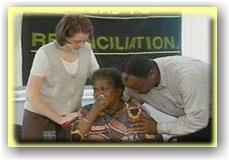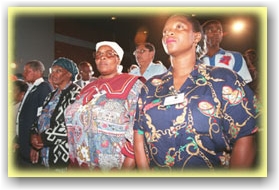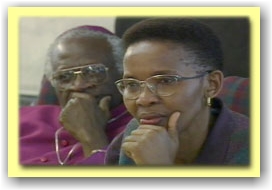TIMELINE
Millennia B.C. – Hunter-gatherers, ancestors of the Khoisan (Khoikhoi and San: “Hottetots” and “Bushmen”) lived in Southern Africa.
1652 – The Dutch East India Company founded a refreshment station at the Cape of Good Hope, initiating 150 years of conflict in which the Afrikaners (“Boers”) conquered the Khoisan and began the import of slaves.
1657 – Settlers began arriving from the Netherlands.
1658 – Two shiploads of slaves were imported to the Cape, beginning an era of slave labor throughout the region.
1806 – The British tried to gain control in the eastern frontier zone.
1807 – Parliament banned British participation in the slave trade.
1820 – Parliament voted to pay to transport British settlers to the Cape Colony. The settlers were unknowingly placed on land claimed by Africans who had been victims of white oppression.
1830 – A Guardian of Slaves was appointed to monitoring the punishments of slaves.
1842 – The Natal Republic was brought into the British Empire, with the stipulation that “there shall not be in the eye of the law any distinction of colour, origin, race, or creed; but that the protection of the law, in letter and in substance, shall be extended impartially to all alike.”
1860 – Indians began migrating to South Africa in large numbers, establishing three distinct communities: Africans, Whites, and Indians.

1870 – Whites began conquering African communities and incorporating them into a capitalist, white-dominated economy.
1930 – New laws required blacks to report in to an official and to carry passes while walking through non-black areas. An amendment empowered urban authorities to remove “surplus (African) females” from white areas and place them in established African locations.
1936 – The Afrikaner National party limited the voting rights of African and Coloured people to the election of three whites to represent them in Parliament.
1948 – The National party won a general election and began to apply its policy of apartheid. “Whites-only” signs were placed throughout the nation, including at schools and in places of employment. Interracial marriage was prohibited.
1950 – The National party abolished the parliamentary seats of the white representatives of both the African and Coloured voters.
1951 – Over nine million black citizens were denaturalized, and subsequently needed passports to enter South Africa.
1955 – The Congress of the People, consisting of 2,000 African, 320 Indian, and 230 Coloured delegates, convened and authored the Freedom Charter, destined to endure as the African National Congress’ basic policy statement.
1955 – The Black Sash, a South African women’s organization, was formed to protest the Coloured Vote Bill that prohibited people of mixed race from voting. Most of the groups’ 10,000 members were white, middle-class, English-speaking women. They held peaceful demonstrations designed to embarrass government officials.
1956 – 20,000 African women silently assembled in the Prime Minister’s office to deliver a petition in protest of the decision to extend the “pass laws” to black women.
1958 – Police arrested 2,000 African women for refusing to accept their passes.
1960 – A large group of blacks in Sharpeville mounted a protest by refusing to carry their passes. Police opened fire, killing 69 people and wounding 187, the majority of whom were shot in the back.
1960-1983 – Over 3.5 million blacks were forcibly moved from their places of residence and relocated in townships.
1973 – The General Assembly declared apartheid “a crime against humanity.”

1976 – Thousands of black schoolchildren in Soweto demonstrated against the government’s mandate that half of their subjects be taught in Afrikaans. Police shot and killed a 13-year-old black student during the demonstration.
1977 – The U.N. Security Council unanimously voted a mandatory arms embargo against South Africa.
Top of Page
1986 – The South African government proclaimed a nationwide state of emergency, prohibiting the press, radio, and television from reporting unrest. During such states of emergency, police could detain anyone for up to six months without a hearing. Thousands died in custody, frequently after gruesome acts of torture. Others were tried and sentenced to death or imprisoned for life.
1994 – The ANC won the first non-racial election. Nelson Mandela was sworn in as president and formed the Government of National Unity. Foreign governments lifted sanctions. Crime escalated.
1995 – Parliament established the Truth and Reconciliation Commission, declaring: “… a commission is a necessary exercise to enable South Africans to come to terms with their past on a morally accepted basis and to advance the cause of reconciliation.” – Mr. Dullah Omar, Minister of Justice




